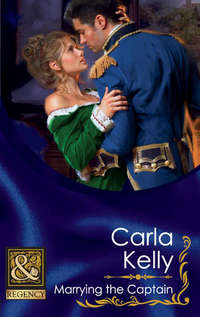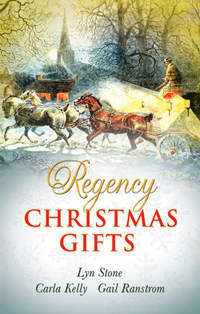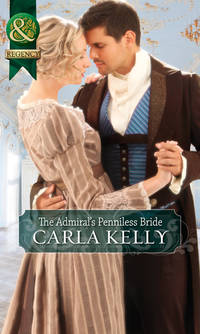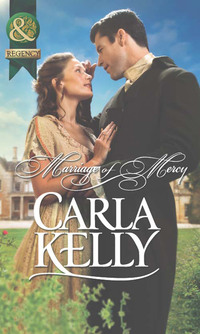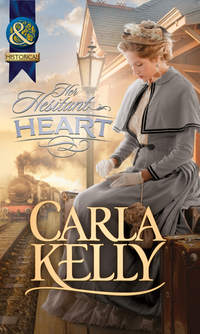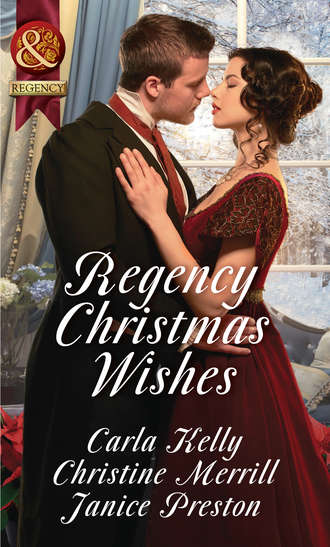
Полная версия
Regency Christmas Wishes: Captain Grey's Christmas Proposal / Her Christmas Temptation / Awakening His Sleeping Beauty
‘Am I an idiot?’ he asked her, then felt instantly stupid for talking to a statue.
He felt disgusted with himself for tossing away money and time on a long voyage to the United States, on the highly unrealistic chance that nothing would have changed from the time he sailed away. God Almighty, he had chastised midshipmen at length for that kind of illogical thinking, and now he had committed worse follies than theirs.
His breathing slowed down as he began to admire the pretty statue’s carved serenity. He had long harboured the nagging suspicion that his was not destined to be an easy life, or even a lengthy one. A realist, he knew the Treaty of Amiens would only last until First Consul Napoleon felt he was sufficiently prepared with new warships sliding down the ways into the sea around Spanish Gibraltar. The war would begin again in more earnest. When that happened, he did not think it would end anytime soon. Like other men of his class and career, he would have to fight on until the armies wore themselves out, and the seas ran with blood.
The more fool he, that on the Atlantic crossing he had begun to imagine for a tiny moment a happy life with Theodora Winnings, who was waiting for him in Charlestown with love in her heart, even after eleven years. What folly. He had no idea where she was.
He looked at the statue with the modest downcast eyes. ‘Any suggestions, madam?’ he asked, after looking around to make certain he was still alone on the street. ‘Please consider the season. My mother used to tell me that wonderful things happen at Christmas.’
Nothing. What now, oh, brilliant man? he asked himself. He could go to Savannah, but for all he knew, Teddy Winnings had been sold down river and wasn’t there. He could also travel north to Boston, which he wanted to see again. Admiralty had no idea where he was, and he had enough funds to chase any number of will-o’-the-wisps.
Do I go north or south? he asked himself, uncertain, perplexed, irritated and above all, sad.
As he stood there, he took a deep breath and another. Each breath brought the fragrance of gardenia, roses and other blooms to his nostrils. Cardinals flitted in the trees. He knew Savannah promised more of the same. His chances of locating Teddy Winnings were slim to none, but he could at least spend one warm Christmas, which might render his misery less excruciating. He remembered Christmas in Boston, and decided he had no wish to be cold and sad. Warm and sad had more appeal; it also made him smile.
He waited for the idea to sound ridiculous, but it didn’t. ‘Savannah, it is,’ he told the statue, and gave her a little salute. ‘What do I have to lose?’
He went back to the shipping office, where the agent behind the counter took his money and informed him that the next coasting vessel would sail on the tide.
‘Towers,’ he said, and returned some silver to Jem’s palm.
‘Beg pardon?’
‘Towers, Sir.’
‘I don’t understand what you mean by towers,’ Jem said, speaking distinctly, and wishing the agent would do the same.
Appearing remarkably put out, the agent pointed to the clock and measured down from two to four.
The mystery was solved. ‘Two hours,’ Jem said, trying to decide whether to laugh or bang his forehead on the counter. He did neither; a post captain in the Royal Navy has some pride.
He took his ticket and left the office, hearing laughter behind him at his expense. He mentally rehearsed blistering profanity that would make him feel better, but only briefly. He decided in the spirit of the season to be a bigger man than that.
It didn’t hurt that the tavern next to the inn had crab cakes, something called okra that luckily tasted better than it looked, and excellent rum. The tavern owner’s slave served him well-remembered spoon bread that went down with equal ease. He finished it all with bread pudding and whiskey sauce, staggered back to the inn to pick up his duffel, and took his way to the wharf again, and Savannah.
He knew the distance between the cities wasn’t great. He secured a deck chair, propped his booted feet on the railing, and slept.
Chapter Five
A spanking wind off the mainland brought the little coasting vessel to Savannah by midnight. As slapdash as ship’s discipline seemed to be, Captain Grey had to give the man at the helm all due honour. Jem knew how tricky it was to sail in the dark near a lee shore, but the captain had managed such a feat, a testament to years of practice from the grizzled look of him.
Jem woke up when he felt a difference in the direction of the wind on his face. He went to the railing and watched as the vessel turned west into the river’s mouth and proceeded upstream to the city proper, past the barrier islands of Tybee, Cockspur, Long and Bird, names he remembered from poring over colonial charts when he was much younger. Amazing what a man could remember. Beacon lights burned along the route as the sea diluted itself into the Savannah River.
Now what? he asked himself as the ship docked right at the wharf, tying up handsomely. Dockside, he looked around, overcame his natural reticence and inquired of a fellow passenger where a man might find an inn.
The traveller gave him a leisurely look—Lord God, didn’t anyone do anything in a hurry in the South?—and stated his opinion.
‘You, Sir, appear to be a man of means,’ the man said and pointed. ‘Up a street to Bay, turn right and you’ll see the Arundel.’ He tipped his hat and walked slowly into the night.
Up a street and right Jem went. The Arundel was a two-story affair with the deep verandas he was growing accustomed to. The lobby was deserted at this midnight hour. Opening the door must have set off a bell ringing somewhere, because a man in a nightshirt and robe emerged, rubbing his eyes. In a few minutes, Jem had a room on the second floor. He climbed the stairs, let himself into Number Four and was asleep in minutes.
He slept late, enjoying the quiet, until a soft tap on the door and a quiet ‘Sir?’ admitted a child with water, towels and soap. Jem took his time washing, shaving and dressing, appreciative of the early morning warmth that signalled life in the South. Dressed and hungry, he opened the glass doors onto the balcony and stood in silent appreciation of the city below.
Coasting vessels and smaller boats carried on the watery commerce. He wondered how on earth he was going to find a woman named Theodora Winnings, who was probably married by now and with some man’s name. That is, if she hadn’t been sold downriver to work the cotton, or died years earlier in one of the regrettable yellow fever epidemics he knew haunted these shores.
The folly of his enterprise flapped home to roost on the railing like one of the seagulls he noticed, squawking with its feathered brethren. He knew nothing about Savannah. He hadn’t a clue what to do. How did a man find a slave, or anyone for that matter, in a town where he knew no one? He had already been the recipient of wary looks because of his British accent. How would he even know if anyone would willingly help him? The war for independence wasn’t that long in the past.
He frowned and regarded Bay Street, lined with shops, some of a maritime variety advertising turpentine, tar and candles. Another sign swung in the breeze and proclaimed Jephthah Morton to be proficient at tooth pulling.
Jem shuddered and turned his attention to a larger, better-kept sign next to the tooth extractor, advertising a dining room. He could eat and walk around, to what purpose he could not have said. Savannah was too large to go door to door. Had he attempted that, he could see himself run out of town as a suspicious character.
He looked beyond the sign of the bloody tooth and experienced what was probably going to be his only good idea in Savannah. He squinted. The paint was faded, but he could just make out Savannah Times and Tides, with Weekly Broadside underneath in smaller letters on a building that seemed to lean with age.
He pulled on his suit coat, checked his wallet for money, and walked down the stairs. The fragrance of ham and hot bread coming from the open doors of the dining room was nearly a Siren’s call, but he walked past the tooth puller, where someone inside was already screaming, and in the door beyond.
He entered cautiously, because the building seemed to list even more when seen up close. ‘Hello? Hello?’ he called, and tapped on the doorframe.
No one answered. He sneezed from the veritable army of dust motes that floated in the air, and sneezed again.
The sound brought a man wearing an ink-stained apron out of a closed door. He was as wide as he was tall, with a long beard that looked as though birds of prey had been poking around in it, searching for something edible. Spectacles perched on the end of his nose appeared to hang there in defiance of Newton’s carefully thought out law of gravity.
‘How may I help you?’ Jem heard, and rejoiced that every syllable was enunciated. This was not a man from the South.
‘You really publish a broadside?’ Jem asked. ‘I need to place an advertisement.’
The man bowed as far as he could, which wasn’t far, considering his bulk. ‘Then you will be my first advertiser in a long, long time, sir.’ He held out his hand, took it back, wiped off some ink, and held it out again. ‘Osgood N. Hollinsworth, publisher, editor and chief correspondent of the Times and Tides.’
‘Captain James Grey of the Royal Navy,’ Jem said as they shook hands.
Osgood N. Hollinsworth blinked his eyes. ‘What? Surely we are not at war again and Savannah has already surrendered?’
Not yet, Jem thought. The question made him wonder how long that would be the truth. Already Secretary of State James Madison had warned the Sea Lords in a carefully worded document just what the United States thought about the Royal Navy stopping its ships and confiscating British crewmen.
‘No, sir, no war,’ Jem said. ‘I simply need to place an advertisement.’
‘Good thing you came this week, Captain,’ Hollinsworth said with a shake of his head. ‘I am laying out the final issue. No one in this Godforsaken town reads.’
‘Really? It appears to be a prosperous place.’
‘Perhaps I am hasty. Commerce here is conducted on the wharf, in the cotton exchange, at the slave auctions and in the taverns, without benefit of newspapers,’ Hollinsworth said. ‘I am not mistaken when I suspect that these...these...let’s call them Southerners...don’t trust anyone not from here.’
‘Where are you from?’ Jem asked.
‘Somewhere a ways to the west of here. Considerably west,’ Mr Hollinsworth said, with a vague gesture.
‘I’ve heard Southerners like to duel at the drop of a hat,’ Jem said, half in jest.
Hollinsworth shook a pudgy finger in Jem’s face. ‘You’ve never seen happy-triggered men so devoted to honour! Don’t run afoul of them!’
‘I shan’t, sir,’ Jem said, still amused. ‘About an ad...’
‘I can arrange it,’ the printer or editor or whatever he was said. ‘Soon enough, I will blow the dust of Savannah off my shoes. Do have a seat. I am so overcome by the idea that someone wants to place an ad that I must sit down, too.’
‘You mentioned slave auctions,’ Jem said, and felt his stomach lurch. Amazing that he could live through years of war and typhoons with nary a flinch in his gut. He knew his sailors referred to him as Iron Belly. Good thing they didn’t know how he felt right now, thinking of slaves and high bidders, and Teddy somewhere in between.
‘A travesty, those auctions,’ Hollinsworth said with a shake of his head. ‘Imagine it—a Yankee named Eli Whitney, invented a machine to take the seeds from cotton bolls. Now everyone is rushing to plant more, increasing the need for slaves.’ He gave a bleak look. ‘But you didn’t come here on slave business, did you?’
‘No,’ Jem lied. ‘Years ago, I spent a few months in Charleston, nearly dead of malaria. A young lady nursed me back to health. I hear she lives in Savannah now, and I want to find her.’
That was enough information for a fat little printer with inky hands, Jem decided. Besides, it was mostly true. He had no trouble looking Hollinsworth in the eyes.
What he saw smiling back at him was difficult to comprehend. If he hadn’t known better, he would have suspected that this man he had just met saw right through his careful words and into his heart, that organ many a midshipman would have sworn he did not possess. What in the world? Jem thought, then dismissed his sudden feeling of vulnerability as the drivel it was. He folded his arms and stared back. ‘I will pay you well.’
‘Enough for passage to Boston, like you?’ Hollinsworth said with a wink.
Do you know something about me? Jem thought, startled again. ‘That seems a little high. If you are reasonable, I will be generous.’
Hollinsworth slapped the table between them and the dust rose in clouds. Jem sneezed again. ‘Oops! I can be reasonable.’
He named a small sum, which confirmed Jem’s suspicions that Osgood N. Hollinsworth was a right jolly fellow, and liked to tease even potential clients. ‘That will be fine,’ he said, and took the few coins from the change purse in his coat.
A sheet of paper and pencil stub seemed to materialize from thin air while Jem was blinking his eyes from the dust.
‘What do you wish me to write?’ the publisher said. ‘Maybe something like, ‘Where are you...insert name? Captain James Grey wants to know. Inquire at the Times and Tides on Bay Street.’ Insert name?’
‘Theodora Winnings,’ Jem said and tucked away his handkerchief. ‘Could you run it in big letters?’
‘I can and will,’ Hollinsworth said promptly. ‘There isn’t much news this week, beyond a warning from the mayor about hogs running loose, and a notice about two escaped slaves.’
‘That will do,’ Jem said as he rose, eager to leave this dusty shop before he sneezed again. ‘Now to breakfast.’
‘And I to work,’ Hollinsworth said. ‘The broadside will be distributed tomorrow. You might wish to walk around Savannah and admire what happens when a town is laid out in an orderly fashion. It’s quite unlike your port of Plymouth.’
‘How do you know where I...’
Hollinsworth shrugged, and looked at Jem with that same piercing but kind glance. ‘A lucky guess, Captain Grey. The ham, biscuits and gravy next door are superb, and you might discover an affinity for hominy grits. Good day to you.’
Chapter Six
Osgood N. Hollinsworth had been correct about the ham, biscuits and gravy. Nearly in pain from over-indulgence, Jem pushed himself away from the table and paid his bill of fare.
Over the next few days, he realised Hollinsworth had also been right about Savannah, a pretty river town laid out in leafy squares. He came to admire the deep porches and understood their necessity. Summers here were probably blistering hot and drenched with humidity. In the deep shadows of the verandas he saw overhead fans, probably set in motion by the children of slaves doing what they were ordered to do. He couldn’t help wondering if Teddy had ever been ordered to fan folks too.
But it was almost Christmas, so the fans remained motionless. He walked, admired the buildings, and breathed deep of magnolia wreaths on many a door of home and business alike. It was far cry from his memories of Boston at Christmas, with wreaths of holly and bayberry, hardy enough to withstand the aching cold. The heady fragrance of magnolia blossoms seemed to reach out to the boardwalk and grab him unaware.
He watched the faces of the city’s workers, wondering if he would recognise Teddy Winnings if he saw her. Would she recognise him? A man who stares day after day into a shaving mirror can probably be forgiven if he thinks he has not changed much. For one thing, Jem knew he looked healthier than the pale, shaking malaria-ridden specimen Teddy had tended. He had put on sufficient weight and heft to give himself more of an air of command. Eleven years had done that, too.
His own curly hair was scarcely visible under his hat, mainly because his habits kept it short. He was a man grown, tested and experienced, not a lieutenant just beginning to understand mortality, and think about dangers ahead. Age could do that; so did war.
When the broadside came out the day after he bought his ad, Jem had been suitably impressed with Hollinsworth’s effort. The twenty-word plea ran across the bottom of the single page in bold letters impossible to miss. Would anyone read it was the question.
In his anxiety to find Teddy without knowing how to do so, he began a little daily commentary to the Almighty, that unknown personage he had been addressing as Sir for years. He acknowledged the absurdity of it, but found himself comforted.
Several days passed. In the print shop where no one ever came, Mr Hollinsworth displayed in the window what he insisted was still the last broadside he intended to publish in Savannah. Jem watched for the small stack to diminish as readers put down their pennies, but it remained the same height, to his discomfort. This was no way to find Theodora Winnings, and so he told Mr Hollinsworth, who took his sharp comments in stride.
‘I’ve distributed my broadsides in the squares, too,’ the little man said serenely. ‘Be patient.’
Jem honestly tried to be patient, going so far as to sit in the back of Christ Church in Johnson Square, the oldest of the squares, according to a shoeshine boy who gave his boots a lick and a promise each day. A choir rehearsed in Christ Church in the evenings, preparing for Christmas services, or so he gathered from their repertory. After supper in the Marlborough Dining Room, he walked the short distance to Johnson Square to listen.
He sat there long enough each night to be greeted eventually by the singers, then asked to join them. He demurred at first, well-acquainted with his own voice. In their polite Southern way, which was beginning to nestle comfortably under his skin, they asked each night until he agreed. By the middle of the second week in Savannah, he attended choir practice three nights a week.
By the end of that week, he also knew his feeble and puny enterprise had failed. How much longer could he stay in this beguiling place remained open to doubt. He had the means to stay for months, but not the inclination. A strange homing instinct was drawing him north toward Massachusetts. He wanted nothing more than to walk those familiar streets and think about his life’s direction, something he hadn’t questioned in years, but which now loomed large in his agile brain.
He owned to traitorous feelings, if such they were. Why was a respected post captain in the Royal Navy even for the tiniest moment considering a more permanent connection with the United States? He should know better, but he liked it here and America was compelling him to stay. It’s complicated, he thought, as he listened to Christmas music, walked the streets and squares of a beguiling little city, and wondered about himself as much as he wondered about Teddy Winnings.
The day came when he knew it was pointless to remain any longer in Savannah. He sat on the side of his bed and silently informed ‘Sir’ in his now-daily commentary that it was time to move on.
I certainly bear you no ill will, sir, he thought or prayed. He never could decide which it was. It was a long-odds chance. I know how busy you are at this season, when I suspect many people who pray more than I do want things. I wish it had worked out. Thanks for listening...if you did.
The day was warm and sunny, much as the day before, and probably as the day after would be. He took his time sauntering to the wharf, breathing in the familiar odour of tarred rope and maritime paint. He waited his turn at the coastal shipping office, aware of his difference among these soft-spoken, slow-moving, congenial folk.
He inquired about a passage north and was informed that he could leave this afternoon on the Charleston coaster, or hang around until the end of the week for a larger vessel being loaded now with cotton and contracted for a Baltimore destination. He decided upon Baltimore. He could take a coach or private conveyance north from there to Boston.
Dissatisfied, unhappy, he walked around that day, stayed awake at night staring at the ceiling.
Tired of his own company and wishing he had cared enough to bathe and shave, he stood on the veranda of the Arundel in the morning, looked toward the print shop and saw her.
Certain he was mistaken, Jem squinted his eyes shut and rubbed the lids. Almost afraid to look, he opened them, and knew the woman across the street, standing there with a broadside in her hand, was Theodora Winnings.
He remained where he was, rooted to the spot, certain she would disappear if he took one step closer. She wore a drab dress, unlike the pretty muslins he remembered. Her hair was invisible under a blue bandanna wrapped around and knotted high on her forehead. He had seen this head covering on slaves in Charleston and Savannah. She was slimmer than he remembered, which told him all he needed to know about her hard life. Holding his breath, he looked down and saw bare feet.
‘Good God, Teddy,’ he whispered, then addressed his silent partner. ‘Sir, why didn’t anyone take care of her?’
It was my job, he told himself. He walked toward the woman he knew he still loved, no matter her circumstances, her race, her current matrimonial status, her anything.
‘Theodora,’ he said, when he was halfway across the street.
The woman had been staring down at the broadside, and then looking at the dilapidated print shop, as if wondering what she was doing there.
Maybe he was wrong. Maybe it wasn’t Teddy. He cleared his throat and spoke louder. ‘Theodora Winnings.’
Honest to God, if he didn’t feel his heart pound like a drum when she looked at him. He stood still in the middle of the street, barely mindful of a carter cursing at him to move. He gave a don’t-bother-me wave of his hand to the driver but consciously willed himself to move.
She stared at him, holding the broadside in front of her as if to shield her body. Slowly she raised it to cover her face, which broke his heart.
He stood right in front of her now. Silently he took the broadside and pulled it away from her face. ‘Teddy,’ he said. ‘Teddy. I owe you such an apology.’
Now that he looked at her, really looked at her honestly, without any of his malaria fever dreams, he could see the smallest trace of Africa. His recent weeks in Savannah had accustomed him to the beautiful shades of dark brown, barely brown, and Teddy’s own creamy complexion found on the kindly, patient people who waited on his table, changed his sheets, and ironed his shirts.
‘Lieutenant Grey?’ she asked, her voice as musical as ever.
He smiled. ‘Captain Grey, actually, Miss Winnings, like it says in the broadside,’ he told her. ‘I grew a little smarter and achieved some rank.’
He wanted her to smile because she looked so serious, with sorrow writ large that he knew was his fault, because he had failed her.
To his dismay, she did not smile. Her shoulders drooped. ‘I should have told you,’ she said simply, and turned to go.
He reached for her, but she was quicker. ‘You don’t want to make a scene here,’ she said in a low voice. ‘Believe me, you do not.’
He lowered his hand. ‘Why did you come then?’
‘I had to see you, Captain Grey,’ she said and took a deep breath. ‘Now I’ve seen you.’
‘But I...’ He saw the tears on her face as she kept backing away.
‘No,’ she said. ‘No.’
‘Sir, this is not fair,’ he said out loud. ‘Not at all.’
She looked around, as if wondering to whom he spoke, when the door to the print shop banged open and Osgood N. Hollinsworth stood there glowering.
‘Get in here right now, Teddy! Your mistress promised me a day’s work!’
Chapter Seven
She ran inside the shop as Hollinsworth glowered at her as though she were a disobedient servant. Jem stood in front of the open door, astonished, wondering what power the man had to command someone he probably had never seen. Jem could have staggered under the weight of the whole awful business when he realised that in the eleven years since they had met, Teddy had become subservient and knew when to obey a white man. Either that, or she knew a ruse when she saw one. Jem already knew how intelligent she was.


